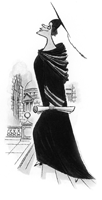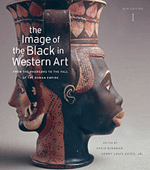Brandeis University Research Shows the Racial Wealth Gap Has Expanded
 Family wealth continues to be a major source of money for college. Families often use financial assets or the equity in their home to secure loans to pay comprehensive fees that can now be more than $50,000 per year. Family wealth continues to be a major source of money for college. Families often use financial assets or the equity in their home to secure loans to pay comprehensive fees that can now be more than $50,000 per year.
A new study by researchers at the Institute on Assets and Social Policy at Brandeis University finds that the wealth gap between black and white families quadrupled in the 1984 to 2007 period. The data shows that the wealth gap increased from $20,000 in 1984 to $95,000 in 2007.
The Brandeis research finds that, when home equity value is excluded, the median wealth for white families is $100,000. This is 20 times the median wealth in financial assets for black families, which stood at $5,000 in 2007.
The study found that for middle-class white families, the median wealth in 2007 was $74,000. This was an increase of more than 300 percent from 1987. For middle-class blacks, the median wealth in 2007 was $18,000. This was down from $25,000 in 1987.
The report, The Racial Wealth Gap Increases Fourfold, can be downloaded by clicking here.
U.S. Ambassador to Nigeria Earns Doctorate at Robert Morris University
 One of the graduates at this spring’s commencement ceremony at Robert Morris University in Pittsburgh was the U.S. ambassador to Nigeria. Robin R. Sanders, who was named ambassador to Nigeria in 2007 by President George W. Bush, received a Ph.D. in communications and information systems. One of the graduates at this spring’s commencement ceremony at Robert Morris University in Pittsburgh was the U.S. ambassador to Nigeria. Robin R. Sanders, who was named ambassador to Nigeria in 2007 by President George W. Bush, received a Ph.D. in communications and information systems.
The Robert Morris University doctoral program, which is geared toward professionals with demanding jobs, requires students to be on campus for 75 days over a three-year period. Students spend one week on campus in August and January and they also take classes on campus every fifth weekend.
Dr. Sanders is a graduate of Hampton University. She holds two master’s degrees from Ohio University.

NORTH DAKOTA STATE UNIVERSITY

Director, Center for Computationally Assisted Science
and Technology
North Dakota State University seeks a Director for the NDSU Center for Computationally Assisted Science and Technology (CCAST). The position will serve as the administrative and scientific leader of the Center currently undergoing a major build-out of capabilities and resources.
Reporting to the Vice President for Research, Creative Activities, and Technology Transfer, the Director will have the unique opportunity of building a new, innovative, applications-driven research computing center. Major responsibilities of the Director include building capabilities and increasing the competitiveness of CCAST to enhance its value for partnering with the private, government, and university sectors, developing strategies to enable users of computational resources to take advantage of high-performance computing, and providing opportunities for research and increased competitiveness for NDSU faculty and staff. General management functions include system management, marketing and communications, external relations with stakeholders, facility development and operations, and project administration. This position will actively promote CCAST’s capabilities in order to develop long term relationships and sustainable productive programs. The Director will lead this effort by creating and implementing a strategy to grow and leverage the capabilities of CCAST.
Application process: North Dakota State University is being assisted by Brown Schroeder & Associates, Inc., an international executive recruiting firm serving both not for profit institutions and the corporate sector. Please send your expressions of interest to sgittins@brownschroeder.com.
NDSU is an EOI. Women & traditionally underrepresented groups are encouraged to apply.

New Scholarship Program Proposed at Historically Black Delaware State University
 Legislation has been introduced in the Delaware House of Representatives that would establish a new scholarship program at historically black Delaware State University. Under the proposal, to qualify for the Inspire Scholarship Program students would need a high school grade point average of 2.75 or above. Under the plan, students who are awarded the scholarship must also agree to perform 10 hours of community service each semester during their college career. Legislation has been introduced in the Delaware House of Representatives that would establish a new scholarship program at historically black Delaware State University. Under the proposal, to qualify for the Inspire Scholarship Program students would need a high school grade point average of 2.75 or above. Under the plan, students who are awarded the scholarship must also agree to perform 10 hours of community service each semester during their college career.
New Nursing School Takes Root in Los Angeles
 The Charles Drew University of Medicine and Science has announced the appointment of the founding dean of its new Mervyn M. Dymally School of Nursing. Gloria J. McNeal, who was serving as associate dean for community and clinical affairs at the University of Medicine and Dentistry of New Jersey, began working at Charles Drew since the beginning of the year. She is a graduate of the nursing school at Villanova University in Pennsylvania. She earned a master’s degree in nursing and a doctorate in higher education administration from the University of Pennsylvania. The Charles Drew University of Medicine and Science has announced the appointment of the founding dean of its new Mervyn M. Dymally School of Nursing. Gloria J. McNeal, who was serving as associate dean for community and clinical affairs at the University of Medicine and Dentistry of New Jersey, began working at Charles Drew since the beginning of the year. She is a graduate of the nursing school at Villanova University in Pennsylvania. She earned a master’s degree in nursing and a doctorate in higher education administration from the University of Pennsylvania.
The new nursing school plans to enroll its first 40 students this fall. Dean McNeal plans to have no-cost mobile nursing units operating in underserved areas of Los Angeles by the end of the year. She also plans to develop a doctoral program in nursing at the university.
Historically Black Jackson State University Names Interim President
 Last month Robert Mason Jr. stepped down as president of historically black Jackson State University in Mississippi to assume the position of chancellor of the Southern University system in Louisiana. The board of trustees of Jackson State University has named Leslie Burl McLemore as interim president while a nationwide search is performed to find a new president. Last month Robert Mason Jr. stepped down as president of historically black Jackson State University in Mississippi to assume the position of chancellor of the Southern University system in Louisiana. The board of trustees of Jackson State University has named Leslie Burl McLemore as interim president while a nationwide search is performed to find a new president.
Dr. McLemore retired in 2009 after more than 40 years on the Jackson State faculty. He was a professor of political science and director of the university’s Fannie Lou Hamer National Institute on Citizenship and Democracy.
Professor McLemore is a graduate of Rust College. He holds a master’s degree in political science from Atlanta University and a Ph.D. in government from the University of Massachusetts.
Recent Books That May Be of Interest to African-American Scholars
Each month, the JBHE Weekly Bulletin publishes a list of new books that may be of interest to our readers. Here is this month’s selection:
• Acting White: The Ironic Legacy of Desegregation by Stuart Buck (Yale University Press)
• African Soccerscapes: How a Continent Changed the World’s Game by Peter Alegi (Ohio University Press)
• African-American Life in the Georgia Lowcounty: The Atlantic World and the Gullah Geechee edited by Philip Morgan (University of Georgia Press)
• An Example for All the Land: Emancipation and the Struggle Over Equality in Washington, D.C. by Kate Masur (University of North Carolina Press)
• Archaeology of Atlantic Africa and the African Diaspora edited by Akinwumi Ogundiran and Toyin Falola (Indiana University Press)
• Black Los Angeles: American Dreams and Racial Realities edited by Darnell Hunt and Ana-Christina Ramon (New York University Press)
• Blackness in the White Nation: A History of Afro-Uruguay by George Reid Andrews (University of North Carolina Press)
• Border War: Fighting Over Slavery Before the Civil War by Stanley Harrold (University of North Carolina Press)
• Change Is Gonna Come: Transforming Literacy Education for African-American Students by Patricia A. Edwards et al. (Teachers College Press)
• Cheddi Jagan and the Politics of Power: British Guiana’s Struggle for Independence by Colin A. Palmer (University of North Carolina Press)
• Child of the Fire: Mary Edmonia Lewis and the Problem of Art History’s Black and Indian Subject by Kirsten Pai Buick (Duke University Press)
• Cooking in Other Women’s Kitchens: Domestic Workers in the South, 1865-1960 by Rebecca Sharpless (University of North Carolina Press)
• Duke Ellington’s America by Harvey G. Cohen (University of Chicago Press)
• Econocide: British Slavery in the Era of Abolition by Seymour Drescher (University of North Carolina Press)
• Encountering Revolution: Haiti and the Making of the Early Republic by Ashli White (Johns Hopkins University Press)
• Freedom Summer: The Savage Season That Made Mississippi Burn and Made America a Democracy by Bruce Watson (Viking Books)
• Hearts Beating for Liberty: Women Abolitionists in the Old Northwest by Stacey M. Robertson (University of North Carolina Press)
• I Belong to South Carolina: South Carolina Slave Narratives edited by Susanna Ashton et al. (University of South Carolina Press)
• I Walked With Giants: The Autobiography of Jimmy Heath by Jimmy Heath and Joseph McLaren (Temple University Press)
• Imprisoned in a Luminous Glare: Photography and the African American Freedom Struggle by Leigh Raiford (University of North Carolina Press)
• It Is Well With My Soul: The Extraordinary Life of a 106-Year-Old Woman by Ella Mae Cheeks Johnson with Patricia Mulcahy (Penguin Books)
• King of the Court: Bill Russell and the Basketball Revolution by Aram Goudsouzian (University of California Press)
• LeBron’s Dream Team: How Five Friends Made History by Lebron James and Buzz Bissinger (Penguin Books)
• Living the Drama: Community, Conflict, and Culture Among Inner-City Boys by David J. Harding (University of Chicago Press)
• Mentoring and Diversity: Tips for Students and Professionals for Developing and Maintaining a Diverse Scientific Community by Thomas Landefeld (Springer)
• Midnight at the Barrelhouse: The Johnny Otis Story by George Lipsitz (University of Minnesota Press)
• Natalie Curtis Burlin: A Life in Native and African-American Music by Michelle Wick Patterson (University of Nebraska Press)
• Nobody Turn Me Around: A People’s History of the 1963 March on Washington by Charles Euchner (Beacon Press)
• North of the Color Line: Migration and Black Resistance in Canada, 1870-1955 by Sarah-Jane Mathieu (University of North Carolina Press)
• Original Gangster: The Real Life Story of One of America’s Most Notorious Drug Lords by Frank Lucas and Aliya S. King (St. Martin’s Press)
• Rabble Rousers: The American Far Right in the Civil Rights Era by Clive Webb (University of Georgia Press)
• Reconstituting Whiteness: The Mississippi State Sovereignty Commission by Jenny Irons (Vanderbilt University Press)
• Schooling the Freed People: Teaching, Learning, and the Struggle for Black Freedom, 1861-1876 by Ronald E. Butchart (University of North Carolina Press)
• Scout, Atticus, and Boo: A Celebration of Fifty Years of To Kill A Mockingbird by Mary McDonagh Murphy (HarperCollins)
• Segregating Sound: Inventing Folk and Pop Music in the Age of Jim Crow by Karl Hagstrom Miller (Duke University Press)
• Stormy Weather: Middle-Class African American Marriages Between the Two World Wars by Anastasia C. Curwood (University of North Carolina Press)
• Talk With You Like a Woman: African American Women, Justice, and Reform in New York, 1890-1935 by Cheryl D. Hicks (University of North Carolina Press)
• The American Slave Narrative and the Victorian Novel by Julia Sun-Joo Lee (Oxford University Press)
• The Black Clergy’s Misguided Worship Leadership by Christopher C. Bell Jr. (Trafford Publishing)
• The Horrible Gift of Freedom: Atlantic Slavery and the Representation of Emancipation by Marcus Wood (University of Georgia Press)
• The Life and Letters of Philip Quaque, the First African Anglican Missionary edited by Vincent Carretta and Ty M. Reese (University of Georgia Press)
• The Quest for Citizenship: African American and Native American Education in Kansas, 1880-1935 by Kim Cary Warren (University of North Carolina Press)
• The World Has Changed: Conversations With Alice Walker edited by Rudolph P. Byrd (New Press)
• Three Ancient Colonies: Caribbean Themes and Variations by Sidney W. Mintz (Harvard University Press)
• Torchbearers of Democracy: African American Soldiers in the World War I Era by Chad L. Williams (University of North Carolina Press)
• Way Up North in Louisville: African American Migration in the Urban South, 1930-1970 by Luther Adams (University of North Carolina Press)
• Why Race and Culture Matter in Schools: Closing the Achievement Gap in America’s Classrooms by Tyrone C. Howard (Teachers College Press)
• You Don’t Know Me: Reflections of My Father, Ray Charles by Ray Charles Robinson Jr. (Harmony Books)
• Zebratown: The True Story of a Black Ex-Con and a White Single Mother in Small Town America by Greg Donaldson (Scribner Books)
|
The Large and Growing Gender Gap in African-American Degree Attainments
 As reported recently in JBHE, new data from the U.S. Census Bureau shows that 4.6 million African Americans hold at least a four-year college degree. But there are vast differences in degree attainments between black women and black men. As reported recently in JBHE, new data from the U.S. Census Bureau shows that 4.6 million African Americans hold at least a four-year college degree. But there are vast differences in degree attainments between black women and black men.
In 2009 there were 1,864,000 black women who had obtained a bachelor’s degree but no higher degree. For black men the figure was 1,247,000. There were 741,000 black women who held a master’s degree compared to 473,000 black men.
In the past, black men held large leads over black women in professional and doctoral degrees. But now nearly equal numbers of black women and black men hold professional degrees. And if we look at professional degree holders in the 25 to 34 age group only, we find that twice as many black women as black men have professional degrees.
In 2009, 66,000 black women held doctoral degrees. For black men the figure is 61,000. This is the first year in the Census Bureau’s annual compilation of data on educational attainment where the number of black women with doctorates was more than the number of black men with doctorates.
  |
“The wealth gap is opportunity denied and assures racial economic inequality for the next generation.”
— Tatjana Meschede, senior research associate at the Heller School for Social Policy and Management at Brandeis University and co-author of a new report on the widening racial wealth gap (See lead story .)
|
It Appears There Are No Blacks Among the New Members of the American Philosophical Society
 Founded by Benjamin Franklin in 1745, the American Philosophical Society has 1,001 members in five broad disciplines: mathematical and physical sciences, biological sciences, social sciences, the humanities, and the arts. Like other learned societies, the American Philosophical Society does not disclose the racial demographics of its membership. But black members of the society include Henry Louis Gates Jr., Claude Steele, Cornel West, Toni Morrison, Lawrence J. Bobo, Sara Lawrence-Lightfoot, and K. Anthony Appiah. Founded by Benjamin Franklin in 1745, the American Philosophical Society has 1,001 members in five broad disciplines: mathematical and physical sciences, biological sciences, social sciences, the humanities, and the arts. Like other learned societies, the American Philosophical Society does not disclose the racial demographics of its membership. But black members of the society include Henry Louis Gates Jr., Claude Steele, Cornel West, Toni Morrison, Lawrence J. Bobo, Sara Lawrence-Lightfoot, and K. Anthony Appiah.
This spring 30 new American members were elected to the society. It appears from JBHE’s search of the new member list that none is black.
The New President of Montgomery College
 DeRionne P. Pollard was named president of Montgomery College in Rockville, Maryland. Dr. Pollard will take office on August 2. She has been serving as president of Las Positas College in Livermore, California. DeRionne P. Pollard was named president of Montgomery College in Rockville, Maryland. Dr. Pollard will take office on August 2. She has been serving as president of Las Positas College in Livermore, California.
Dr. Pollard holds bachelor’s and master’s degrees from Iowa State University. She earned an educational doctorate from Loyola University in Chicago. In 1995 she joined the faculty at the College of Lake County in Illinois. She remained on the faculty and held several administrative positions at the College of Lake County before being named president of Las Positas College in 2008.
Harvard University Press to Publish New Editions of The Image of the Black in Western Art
 In the 1960s Dominique de Menil published a set of five books entitled The Image of the Black in Western Art. Now, a half-century later, Harvard University Press has announced that it will publish a revised edition of the original work. The new effort will include 10 books in five volumes. The first four books will be released this November. In the 1960s Dominique de Menil published a set of five books entitled The Image of the Black in Western Art. Now, a half-century later, Harvard University Press has announced that it will publish a revised edition of the original work. The new effort will include 10 books in five volumes. The first four books will be released this November.
The complete set will include thousands of images of blacks by Western artists that have been produced over the past several thousand years.
The new works are edited by David Bindman, Emeritus Professor of the History of Art at the University College London, and Henry Louis Gates Jr., Fletcher University Professor and director of the W.E.B. Du Bois Institute for African and African American Research at Harvard University.
University Study Finds High Levels of Exposure to Nicotine for Children Who Live in Apartment Buildings: A Major Racial Disparity Exists
 Researchers at the University of Rochester Medical Center in New York have found that children who live in apartments have higher levels of cotinine in their blood than children who live in single-family homes. Cotinine indicates exposure to nicotine from second-hand smoke. Studies have shown that children with increased levels of cotinine are more likely to develop respiratory diseases and to have weaker cognitive abilities. Researchers at the University of Rochester Medical Center in New York have found that children who live in apartments have higher levels of cotinine in their blood than children who live in single-family homes. Cotinine indicates exposure to nicotine from second-hand smoke. Studies have shown that children with increased levels of cotinine are more likely to develop respiratory diseases and to have weaker cognitive abilities.
The data showed that apartment-dwelling children had higher cotinine levels even when no one in their immediate household smoked tobacco. The researchers concluded that to some extent, second-hand smoke is seeping through walls or shared ventilation systems in apartment buildings.
About 18 percent of all American children live in apartment buildings. And black children are more likely to live in these dwellings, particularly those buildings with inferior construction and ventilation.

AMERICAN COUNCIL ON EDUCATION

ACE Fellows Program® 2011-12
Nominations/applications due November 1, 2010
The ACE Fellows Program® prepares advancing academic leaders for senior-level positions in colleges and universities.
ACE Fellows spend up to one year on another campus under the mentorship of the president and his/her senior leadership team, participate in three week-long national retreats, visit other campuses and attend national meetings. Fellows represent all areas of institutional life.
Candidates must have a record of leadership in institutions of higher education and must be nominated by the institution’s president or other senior officer.
For the application and additional information, please visit: http://www.acenet.edu/programs/fellows.

Appointments, Promotions, and Resignations
 • Renee Washington was appointed director of recruitment at Florida A&M University in Tallahassee. She was the faculty counselor for the Ybor City campus of Hillsborough Community College. • Renee Washington was appointed director of recruitment at Florida A&M University in Tallahassee. She was the faculty counselor for the Ybor City campus of Hillsborough Community College.
Washington holds a bachelor’s degree and two master’s degrees from Florida A&M.
 • Andrew Clayton Hughey was appointed general counsel at Texas Southern University. He was general counsel and secretary to the board of trustees at Central State University in Wilberforce, Ohio. • Andrew Clayton Hughey was appointed general counsel at Texas Southern University. He was general counsel and secretary to the board of trustees at Central State University in Wilberforce, Ohio.
Hughey is a graduate of the University of Pittsburgh and the Duquesne University Law School.
 • Choquette M. Hamilton was named director of the Multicultural Information Center at the University of Texas at Austin. She has been the interim director for the past 18 months. • Choquette M. Hamilton was named director of the Multicultural Information Center at the University of Texas at Austin. She has been the interim director for the past 18 months.
Hamilton is a graduate of the University of Texas. She holds master’s degrees from the University of Pennsylvania and St. Joseph’s University and is a doctoral candidate in educational policy and planning at the University of Texas.
 • Harry Robinson III, professor of architecture at Howard University, was selected as the executive consulting architect of the American Battle Monuments Commission. He is the first African American to hold the position. • Harry Robinson III, professor of architecture at Howard University, was selected as the executive consulting architect of the American Battle Monuments Commission. He is the first African American to hold the position.
 • Stephanie Brown was named director of student health and counseling services at Grinnell College in Iowa. She was lead psychologist and director of student health at the University of Texas at Austin. • Stephanie Brown was named director of student health and counseling services at Grinnell College in Iowa. She was lead psychologist and director of student health at the University of Texas at Austin.
Dr. Brown is a graduate of the University of Illinois. She holds a master’s degree from California State University at Los Angeles and a Ph.D. in adult clinical psychology from the University of Georgia.
 • Dorothy Roberts, Kirkland and Ellis Professor at Northwestern School of Law, was awarded the Dorothy Ann and Clarence L. Ver Steeg Distinguished Research Fellowship. The fellowship comes with a research grant of $30,000. • Dorothy Roberts, Kirkland and Ellis Professor at Northwestern School of Law, was awarded the Dorothy Ann and Clarence L. Ver Steeg Distinguished Research Fellowship. The fellowship comes with a research grant of $30,000.
 • Kinfe Ken Redda was named acting vice president for research at Florida A&M University in Tallahassee. He has been serving as a professor in the university’s College of Pharmacy and Pharmaceutical Sciences. • Kinfe Ken Redda was named acting vice president for research at Florida A&M University in Tallahassee. He has been serving as a professor in the university’s College of Pharmacy and Pharmaceutical Sciences.
Dr. Redda has been on the faculty at FAMU since 1985. He holds a Ph.D. in medicinal chemistry from the University of Alberta.
 • John C. Kelly, chair of the departments of electrical and computer engineering at North Carolina A&T State University in Greensboro, was appointed by North Carolina Governor Beverly Purdue to the state’s Board of Examiners of Electrical Contractors. • John C. Kelly, chair of the departments of electrical and computer engineering at North Carolina A&T State University in Greensboro, was appointed by North Carolina Governor Beverly Purdue to the state’s Board of Examiners of Electrical Contractors.
Honors and Awards
 • Richard G. Hatcher, former mayor of Gary, Indiana, and adjunct professor of minority studies at Indiana University Northwest, received the 2010 Distinguished Alumni Service Award from Indiana University. • Richard G. Hatcher, former mayor of Gary, Indiana, and adjunct professor of minority studies at Indiana University Northwest, received the 2010 Distinguished Alumni Service Award from Indiana University.
 • Kwame Anthony Appiah, the Laurance S. Rockefeller University Professor of Philosophy at Princeton University, received from the university the Howard T. Behrman Award for Distinguished Achievement in the Humanities. • Kwame Anthony Appiah, the Laurance S. Rockefeller University Professor of Philosophy at Princeton University, received from the university the Howard T. Behrman Award for Distinguished Achievement in the Humanities.
 • Thelma Golden, director and chief curator of the Studio Museum in Harlem, received the Medal of Distinction from Barnard College in New York City. Golden is a graduate of Smith College. • Thelma Golden, director and chief curator of the Studio Museum in Harlem, received the Medal of Distinction from Barnard College in New York City. Golden is a graduate of Smith College.
 • William R. Harvey, president of Hampton University in Virginia, is the recipient of the Harvey C. Russell Inclusion Award from PepsiCo. Dr. Harvey is the owner of a Pepsi-Cola bottling plant in Michigan. • William R. Harvey, president of Hampton University in Virginia, is the recipient of the Harvey C. Russell Inclusion Award from PepsiCo. Dr. Harvey is the owner of a Pepsi-Cola bottling plant in Michigan.
 • Cheryl Taylor, director of nursing research at Southern University, received the Leadership Award from the Centers for Disease Control and Prevention in Atlanta. • Cheryl Taylor, director of nursing research at Southern University, received the Leadership Award from the Centers for Disease Control and Prevention in Atlanta.
 • Kimberly B. Davis, president of the JPMorgan Chase Foundation and member of the board of trustees of Spelman College, received the Distinguished Service Award from the New-York Historical Society. • Kimberly B. Davis, president of the JPMorgan Chase Foundation and member of the board of trustees of Spelman College, received the Distinguished Service Award from the New-York Historical Society.
• Phillip Jeter, professor and chair of the department of mass communications at Winston-Salem State University in North Carolina, was given the 2010 Edward L. Bliss Award for Distinguished Broadcast Journalism Education from the Association for Education in Journalism and Mass Communication.
A graduate of Johnson C. Smith University in Charlotte, North Carolina, Dr. Jeter holds a master’s degree from Cornell University and a Ph.D. from the University of Wisconsin.
 • The Center for Civil Rights in Education at Morgan State University in Baltimore was renamed to honor Robert M. Bell, chief judge of the Maryland Court of Appeals. Bell is a graduate of Morgan State University and Harvard Law School. • The Center for Civil Rights in Education at Morgan State University in Baltimore was renamed to honor Robert M. Bell, chief judge of the Maryland Court of Appeals. Bell is a graduate of Morgan State University and Harvard Law School.
  |
53.1% Percentage of all African-American instructional faculty at the nation’s colleges and universities in 2007 who were women.
37.6% Percentage of all African-American full professors at the nation’s colleges and universities in 2007 who were women.
source:U.S. Department of Education
|
Grants and Gifts
• Lafayette College, the highly rated liberal arts institution in Easton, Pennsylvania, received a five-year, $590,000 grant from the National Science Foundation for scholarships for minority students in science, engineering, and mathematics disciplines.
• LeMoyne-Owen College, the historically black educational institution in Memphis, received the largest gift in its history from the estate of an alumna. The college received $487,500 as the result of the sale of real estate assets in San Francisco owned by the late Wylodine Taylor Patton, who graduated from the college in 1940.
• The medical center at the University of Mississippi received a $120,000 grant from the Hearst Foundation to endow a scholarship fund for disadvantaged students pursuing degrees in nursing.
• Tennessee State University, the historically black educational institution in Nashville, received a two-year, $200,000 grant from the U.S. Department of Energy to study refractory alloys for high-temperature advanced energy systems.
|
 .
.